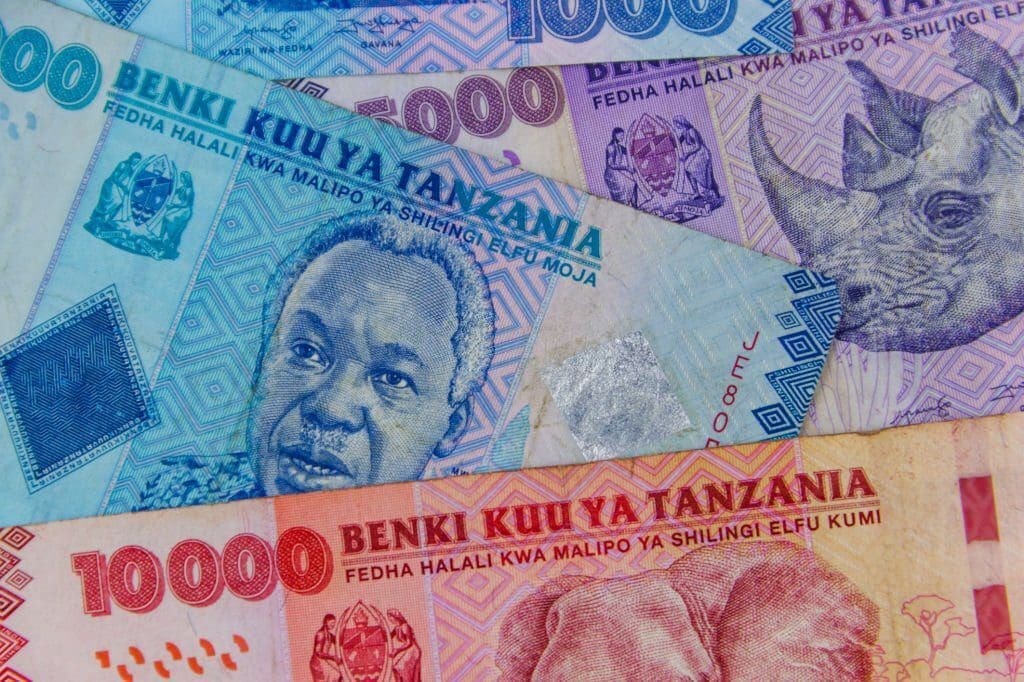Traveling to Tanzania is an exciting adventure that promises incredible experiences, from the majestic Mount Kilimanjaro to the stunning beaches of Zanzibar. Before you travel, it’s important to know about money and currency in Tanzania. This will help make your trip easier. This guide will explain Tanzania’s money, exchange rates, and useful tips for managing money while you travel.
Tanzania’s official currency (Tanzania money) is the Tanzanian Shilling, abbreviated as TZS. The symbol for the Tanzanian Shilling is “TSh.” You can find banknotes in these amounts: 1,000, 2,000, 5,000, and 10,000 shillings. Coins come in 50, 100, 200, and 500 shillings.
When planning your budget for Tanzania, understanding the exchange rate is essential. Exchange rates can fluctuate, so it’s a good idea to check the current rate before you travel. As of the latest update, one U.S. dollar is roughly equivalent to 2,700 Tanzanian Shillings. However, it’s important to verify the rate closer to your travel date as it may vary.
Exchanging money in Tanzania can be done at various locations. Here are some options to consider:
Banks and official currency exchange bureaus offer reliable services for exchanging foreign currency to Tanzanian Shillings. They usually provide competitive rates and are located in major towns and cities. Some popular banks include the National Bank of Commerce (NBC) and CRDB Bank.
Currency exchange services are available at major airports like Julius Nyerere International Airport in Dar es Salaam and Kilimanjaro International Airport. While convenient, airport exchange rates might not be as favorable as those in the city.
Many hotels offer currency exchange services, but they often provide less competitive rates compared to banks and official bureaus. It’s wise to exchange only small amounts at hotels for convenience.
Using ATMs and credit cards in Tanzania is possible but may come with some limitations. Here’s what you need to know:
ATMs are widely available in major cities and towns across Tanzania. Most ATMs accept international cards, such as Visa and MasterCard. However, it’s advisable to inform your bank about your travel plans to avoid any card issues. Keep in mind that ATMs may charge withdrawal fees, so it’s best to withdraw larger amounts to minimize charges.
While credit cards are accepted in major hotels, restaurants, and shops, it’s essential to carry some cash for smaller establishments and local markets where card payments might not be possible. Additionally, some places may charge a surcharge for card transactions, so it’s wise to confirm before using your card.

Handling money efficiently will make your travel experience in Tanzania more enjoyable. Here are some tips to consider:
Having small denominations of Tanzanian Shillings is practical for everyday expenses, such as buying snacks or using public transportation. It can also be helpful when tipping service staff.
As with any travel destination, it’s important to keep your money safe. Use a money belt or a secure wallet, and avoid carrying large amounts of cash. Consider using hotel safes for storing extra cash and important documents.
Stay vigilant against currency scams, especially in crowded areas and tourist hotspots. Only exchange money at reputable places and avoid street exchangers who may offer seemingly attractive rates but can be fraudulent.
Tanzania has its unique payment culture that travelers should be aware of:
Tipping is not mandatory, but it’s appreciated. Common tipping amounts:
Where to Shop with Cash?
Bargaining Tip:
In markets, bargaining is expected! Start at 50% of the asking price and negotiate.
Understanding the currency and money matters in Tanzania is a crucial aspect of planning your trip. By familiarizing yourself with the Tanzanian Shilling, exchange rates, and local payment practices, you’ll be well-prepared to handle your finances during your adventure.
Remember to exchange your money at reputable places, carry small denominations, and use ATMs and credit cards wisely. With these tips in mind, you’ll be ready to explore Tanzania with confidence and ease. Enjoy your travels!